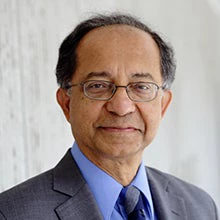The first week as World Bank Chief Economist has left me excited, on the trot, (not to mention, slightly exhausted) and more convinced than ever that John Maynard Keynes was right when he wrote in the General Theory that the course of history, for good or for bad, is determined more by ideas and opinions than vested interests. I assert this with some confidence because of my somewhat unusual career experience, beginning with academic research, writing and teaching to being thrown into the deep end of the policymaking pool, when, in 2009, I was appointed India’s 14th Chief Economic Adviser and the first with no taint of prior experience in government.
I feel privileged to have this new challenging job and hope to engage with readers of this blog as I become more conversant with the Bank's work and also with writing a blog, which I have never done before, my social interaction on the web thus far being restricted to the 140-character tweet.
During the course of many G20 and other high level meetings with policymakers when I was still wearing my India hat, I was struck time and again by the fact that having a critical mass of people who are well-intentioned and susceptible to good ideas can do so much to break the toughest of impasses, whether in trying to decide on monetary and fiscal policies or in targeting welfare benefits or in battling poverty.
I have long believed that the world is a small place, and whoever has had the fortune to have done even moderately well has a responsibility towards the poor and the marginalized, wherever they happen to be, and whatever be their religious, racial and other identities. The World Bank, with its presence in the poorest regions in the world and, also, industrialized nations undergoing change and trauma, is well-suited to this internationalist agenda.
Using my theoretical and policy experience, I will try my best to influence the institution's new direction toward being a 'solutions Bank', something that the Bank’s new president Jim Yong Kim has stressed. This is a challenging time for international financial institutions and governments reeling under the sovereign debt crisis. I hope to be engaged in helping policymakers steer the global economy back onto a sustainable growth path. The pain of the Great Recession will be with us for a while. The injection of liquidity by several major central banks was the right move to save the day; but we must be clear that these policies do not solve our problems; they buy us time to solve them. So the hard decisions are still ahead of us. It is vital that even as we remain engaged in designing ways out of this slump, we attend to people in the bottom segment wherever they happen to be, in nations poor and rich.
Jobs will be high on the agenda in Tokyo next week, where I will be attending the IMF-World Bank Annual Meetings. I'll be speaking to the Development Committee on 'Creating Good Jobs for Development: Policy Directors from the 2013 WDR on Jobs' and one of the points I intend to stress is how globalization is transforming labor markets and confounding businessmen, politicians and young job seekers alike. In designing jobs strategies we have to be aware that the world is a diverse place, ranging from steadily industrializing nations like Indonesia to nations facing the challenges of a fragile economy such as Cote d'Ivoire.
We also need to unleash a debate about structural transformation and rapid economic change, since unless we stay ahead of the curve, too many people will be left behind in poverty and destitution. Going by past experience, I know I have been good at churning up debates. So as soon as I settle into my new office, I assure you, I will attend to this need.


Join the Conversation